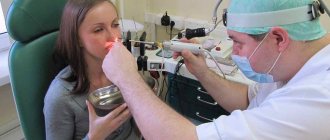Infectious diseases arise due to the entry and reproduction of various microorganisms and parasites in the human body. A specialist in this pathology is an infectious disease doctor. Infectious diseases can develop against the background of various chronic pathologies in the body, and against the background of infection, decompensation of the existing disease occurs. Infectious diseases can lead to the development of surgical pathology, and in severe cases to urgent conditions requiring resuscitation. Therefore, an infectious disease doctor must know the specifics of all related medical fields and have resuscitation skills. An infectious disease doctor must have knowledge in specific laboratory diagnostics aimed at identifying the pathogen. Know the current current epidemiological situation regarding infectious diseases in the region.
Who is an infectious disease specialist
An infectious disease specialist is a specialist who studies infectology (the science of infections).
Such a doctor receives his education at a medical university, after which he supplements it with post-medical education. This period - internship - lasts 2-4 years. After this, the doctor can begin independent practice.
The subject of his study is the ways of occurrence and causes of infections, their manifestations and development in the human body, comprehensive treatment regimens and preventive measures.
Since infectious pathologies can affect almost all human organs and organ systems, impeccable knowledge of all the intricacies of anatomy is a prerequisite for a doctor of this specialization.
The main areas in which the causative agents of most infections are concentrated, determined by an infectious disease specialist, are divided into the following types:
- intestinal infections - the pathogen is swallowed with food or comes into contact with dirty hands;
- blood diseases (vector-borne) - transmitted through the bites of blood-sucking insects;
- blood diseases (non-transmissible) - infection occurs during the transfusion of donor blood or due to the use of contaminated needles for injections;
- respiratory infections - the pathogen enters the respiratory tract during inhalation;
- skin infections - can enter the body through contact of the pathogen with the skin or mucous epithelium.
In addition, an infectious disease specialist oversees immunization processes and participates in the development of anti-epidemiological measures.
What diseases does it treat?
Infectious diseases that fall under the purview of an infectious disease specialist are divided into 4 categories:
- Zoonoses. Such infections develop after certain microbes enter a person from the body of animals. The most common of them include rabies, anthrax, malaria, botulism, plague, etc.
- Anthroponoses. A person can only become infected with such diseases from other people, since pathogens live only within the human body. These include rotavirus, typhoid fever, cholera, polio, etc.
- Sapronoses. Microorganisms that cause sapronoses live in the soil, natural reservoirs and other inanimate natural objects.
- Parasitic infections. An extensive group of diseases caused by worms, roundworms and other protozoa. In our latitudes, ascaridiosis, giardiasis, toxocariasis, etc. occur.
In most cases, infectious disease specialists undergo in-depth specialization, according to which they are divided into the following specialized areas:
- Immunologist-infectious disease specialist. He is in charge of identifying and treating chronic infectious pathologies that can significantly worsen the patient’s immunity. This picture is observed in asthmatics, patients with mononucleosis and certain sexually transmitted diseases.
- Virologist. Qualifies for viral diseases. Since the life activity of viruses and the principles of their treatment are somewhat different from bacteria and protozoa, working with them requires special skills and knowledge that a virologist has. Viral pathologies include HIV, cytomegaly, influenza, rubella, hepatitis and viral pneumonia, measles and many others.
- Parasitologist. Its specificity is represented by parasitic pathologies that can cause damage to various types of tissue and organs, deficiency of nutrients in the body and other manifestations. Most often, parasitologists have to deal with ascariasis, scabies, echinococcosis, helminthiasis, encephalitis and other diseases.
Appeals
Scheduled appointment
The KIZ doctor is a specialist in a narrow profile, so an appointment with him is carried out through a therapist if there are indications. To visit an infectious disease specialist, it is advisable to have at least the primary tests on hand:
- general and biochemical blood tests;
- general urine analysis;
- fluorography;
- Ultrasound of the abdominal organs.
This applies to the initial appointment for non-emergency reasons.
Emergency appointment
When can you see an infectious disease specialist without a referral from a general practitioner:
- acute infectious disease - chickenpox, intestinal infection, measles, rubella, scarlet fever;
- a scheduled appointment with a person at a dispensary - usually the CIZ doctor himself sets the date for the next appointment;
- an infectious disease diagnosed during self-testing or in another hospital - for example, viral hepatitis or helminthiasis.
At the same time, it is also advisable to have the results of tests and previous examinations with you. There is no need to take special tests for specific infections - the doctor himself will determine what kind of examination is needed.
Issuance of certificates
What you need to have with you to obtain certificates:
- employment, admission to study - blood test for typhoid fever, HIV, viral hepatitis; swab from the nose and throat for diphtheria, streptococcus, Staphylococcus aureus; feces for helminths, protozoa;
- guardianship, adoption - blood test for HIV, viral hepatitis; fluorography result.
All analyzes are valid for a month.
To register a disability at the initial appointment, you do not need certificates - the doctor issues a list of examinations depending on the disease.
Pediatric infectious disease specialist
An infectious disease specialist working in pediatrics deals with a certain list of typical diseases characteristic of childhood. Thus, children's respiratory organs are more vulnerable to infections than adults, so respiratory diseases spread quickly in gardens. In addition, a child can suffer greatly from an intestinal infection, even when all family members suffer from it practically asymptomatically. A pediatric infectious disease specialist is familiar with all age-related features of the course of these pathologies.
Most often, he treats children for diseases such as measles, scarlet fever, diphtheria, whooping cough, rubella, rotavirus, mumps, etc.
Anti-vaccination - what is it?
Anti-vaccination is a social movement that questions immunization (vaccinations), considering it a dangerous delusion.
Infectious disease specialists do everything that can preserve and strengthen the human immune system . Despite this, there are also supporters of refusing vaccinations. This movement arose after the advent of the first smallpox vaccine and has influenced society with varying degrees of success.
Proponents of such views argue that vaccinations are dangerous and unnecessary. Periodically, this leads to local outbreaks of infectious diseases , since an unvaccinated person is a potential carrier of infection.
In what cases should I contact
Most infectious diseases quickly manifest themselves and have a pronounced picture: accompanied by fever or intestinal disorders. But some can develop quite long and slowly.
Signs that you need to see an infectious disease doctor cannot be ignored, since the pathology can quickly worsen and lead to disability or even death. Reasons for contacting may be:
- frequent or severe headaches;
- sleep disturbances (asomnia or excessive sleepiness);
- signs of sexually transmitted infection (itching, purulent discharge from the vagina, urethra or penis);
- damage to mucous tissues;
- increased fatigue;
- aches and pains in muscles;
- swollen lymph nodes;
- rashes and redness on the skin or mucous epithelium;
- high fever, vomiting, nausea, constipation, diarrhea and other signs of intoxication.
Who can an immunologist help?
Nadezhda Dmitrievna Titova , immunologist, highest qualification category, Doctor of Medical Sciences.
Today it has become fashionable to talk about increasing immunity in order to prevent any diseases and, conversely, in case of any illness, blame everything on “bad immunity”, prescribe drugs that should supposedly “increase” and “strengthen” it. However, many widely advertised “immunity” drugs are not only useless, but also dangerous, and also have various side effects.
Indeed, in recent years, much scientific evidence has emerged that the immune system plays a key role in the development and progression of many diseases. However, few people (sometimes even among doctors) think about, and sometimes simply do not know, what symptoms and signs are the reason for determining certain indicators of the immune system. Only an immunologist can help you understand whether there is a connection between a patient’s diseases and the functioning of his immune system and, if necessary, select corrective treatment and give professional recommendations.
Acute respiratory infections are the absolute leaders in the structure of infectious morbidity in childhood. Frequent, severe, long-term episodes of respiratory infections in children are the most likely causes of the formation of chronic pathology. Repeated infections and the associated need to use medications (especially antibacterial ones) can subsequently lead to various adverse consequences:
- Violations of local mucosal immunity with long-term persistence of the virus;
- Violation of the barrier function of the skin and local immunity (exacerbation of dermatitis);
- Exacerbation and progression of allergic diseases (including bronchial asthma, allergic rhinitis);
- Development of inflammatory processes on the mucous membranes of the gastrointestinal tract, urogenital tract, etc.;
- Development of drug resistance in viruses, bacteria, fungi.
It has been established that about ten percent of children with recurrent infections have an immunodeficiency, with a defect in one or more components of the immune system, and some children have an undiagnosed allergic or chronic disease. Both primary and secondary immunodeficiencies can lead to increased susceptibility to malignancies and autoimmune diseases. The type and nature of repeated infections depend on which components of the immune system are affected.
Clinical warning signs indicating primary immunodeficiency (PID):
- The presence of PID patients in the family, the presence in the family history of the death of a young child from an infectious process;
- Frequent respiratory diseases (more than 6 times during the year);
- Lagging of a child under 1 year of age in weight and height;
- Recurrent diarrhea;
- Absence or minimal effect of long-term antibacterial therapy;
- Purulent otitis, sinusitis more than 2 times during the year;
- Two or more pneumonias within a year;
- Recurrent thrush (candidiasis), aphthous stomatitis over the age of 1 year;
- Complications during vaccination with attenuated live vaccines (BCG, polio);
- Recurrent deep abscesses of the skin and soft tissues;
- Two or more episodes of severe infections within a year;
- Infection caused by an unusual microorganism and/or in an unusual location;
- Non-healing wounds;
- Unexplained fever.
An immunologist diagnoses and treats: primary and secondary immunodeficiency conditions, sees patients with frequent colds and infectious diseases, immunodeficiency conditions and the presence of various allergic reactions.
The main directions of treatment and advisory work of an immunologist
- Drawing up a program for immunological examination of frequently ill patients;
- Assessment of the immune status of patients;
- Restoring immune defense in adults and children who often suffer from acute respiratory diseases;
- Carrying out immunocorrective therapy for immunodeficiency states;
- Recommendations for immunoprophylaxis;
- Treatment of diseases caused by chronic viral infections (herpes viruses, papillomaviruses, etc.);
- Treatment of recurrent bacterial infections;
- Treatment and prevention of allergic diseases that are difficult to respond to standard therapy.











